This page is a stub. It will be expanded to a full-fledged article.
Argos
Q189901Argos (Greek: Ἄργος): city in the northeastern Peloponnese.
Early History
-
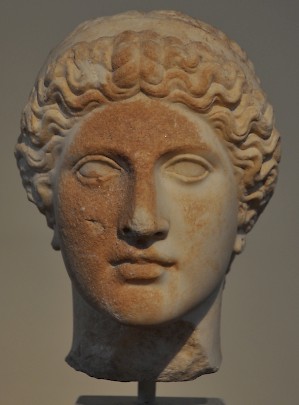
Argos, Heraion, West pediment, Head of Hera - Controls the road from Corinth to Nauplia and Arcadia
- Early occupation (Early and Middle Helladic)
- Mycenaean citadel on the Larisa hill; echoes of this age in the Epic Cycle (Thebais; Epigoni)
- Dorian invasion; takes over power from Mycenae and controls the eastern part of the Peloponnese down to Cythera
- c.750-725 BCE Temple of Hera
- c.725-700 BCE Destruction of Asine
- Argos defeats Sparta at Hysiae
- c.600 BCE The king-tyrant Pheidon
- It is reasonable to assume that towns that felt threatened by Argos asked Sparta for protection; creation of the Peloponnesian League
- c.547 BCE Battle of Thyrea, Argos loses the southeastern Peloponnese to Sparta (the Thyreatis)
- Conflict with king Cleomenes of Sparta; big crisis; a combination of monarchy and democracy
Fifth century
-
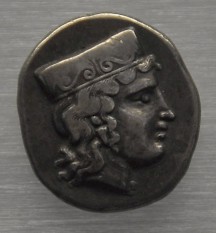
Hera on a coin from Argos - The Macedonian dynasty, the Argeads, claim to be from Argos
- c.460: Full democracy
- Gradual expansion of control: end of Tiryns and Mycenae, conquest of Cleonae + control Nemean Games
- BCE 423 Destruction of the temple of Hera
- In the entr'acte between the Archidamian War and the Decelean War: alliance with Athens
Fourth century
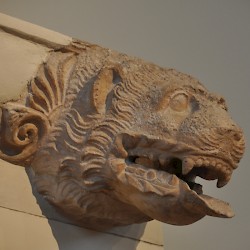 Argos, Heraion, Sima |
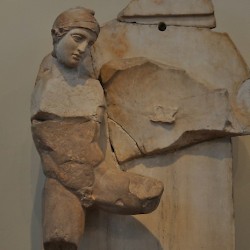 Argos, Heraion, Amazonomachy |
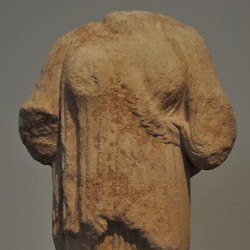 Argos, Heraion, West pediment, Palladion |
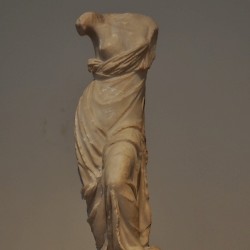 Argos, Theater, Statue of Aphrodite |
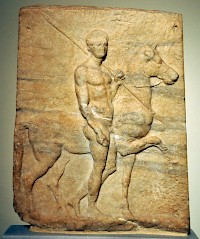
- The sculptor Polykleitos
- 395-387 BCE: Corinthian War (Thebes, Corinth, Argos, Athens against Sparta)
- In the Hellenistic age various alliances
- 272 BCE Death of Pyrrhus
- 229 BCE Part of Achaean League
- Becomes part of Roman Empire
Roman Rule
- 267 CE Destroyed by barbarians
- 395 CE Destroyed by barbarians